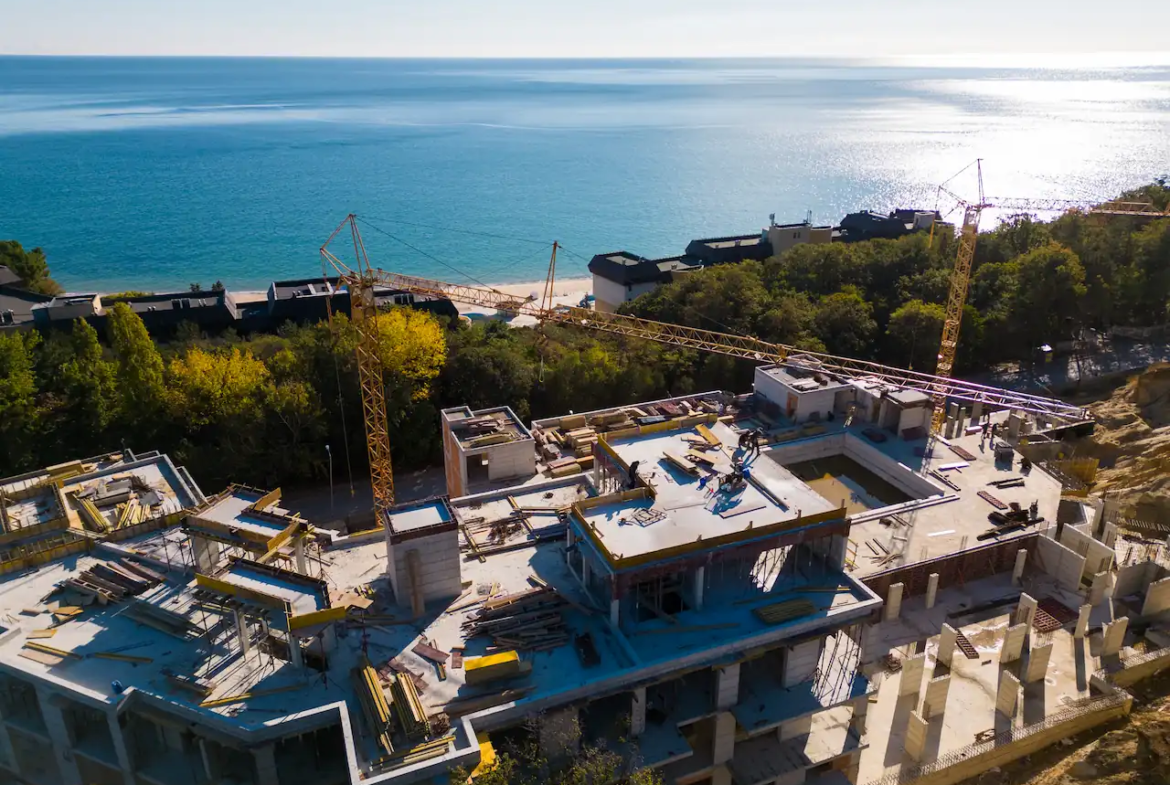For years, buying property in Bali felt simple. You just need to pick a spot, sign some papers, and start your dream investment. But today, the Bali property regulations has been changed.
New rules are reshaping how real estate works here, especially after the severe Bali floods in August-September 2025.
This isn’t bad news—it’s just different. And if you understand the changes, you can use them to your advantage.
So what’s changing? Let’s break it down here.

Get a Customized Investment Plan in Bali
With over 15+ years in the market, here’s what we can do for you:
- Find the best location to invest in Bali.
- Reliable guidance on Bali’s property market and laws.
- Personalized strategy to maximize returns and meet your financial goals.
Contents
Key Takeaways
- New rules don’t ban property investment in Bali—they just make it stricter. Only legal, well-planned projects in the right zones will be approved.
- Foreigners can still buy through leasehold or PT PMA.
- Success now depends on doing it right. Stay updated, work with experts, and follow legal steps to protect your investment and maximize returns.
Explore Investment Options: Available Bali Villas for Sale - Leasehold and Freehold
New Bali Property Regulation: Quick Overview

There’s been talk of a ban on new hotels and villas in Bali—but the Bali governor, Wayan Koster, confirmed there’s no full stop.
Instead, the government is tightening regulations to control what gets built. For investors, this means one thing: only well-planned, compliant projects will move forward.
So if you’re investing, understanding the new rules is more important than ever. You need to be extra cautious. Here's why:
- Stricter zoning laws: Not all land is automatically good for building anymore. What was possible a year ago might not be allowed today.
- More regulated approvals: Permits and paperwork take longer and require more checks. You need to be prepared.
- Greater focus on sustainability. The government wants developments that fit Bali’s long-term vision. That means not every project will get a green light.
But here’s the thing: these new rules don’t mean investing is harder. They just mean you need to do it the right way.
Read More: Invest in Bali with High ROI: Verified Guide by Trusted Local Real Estate Agent
Legal Essentials for Foreign Property Buyers in Bali
Foreigners looking to buy property in Bali must fulfill several legal requirements. These include:
- Get an Indonesian Tax ID (NPWP)
- Set up a local company (commonly used for property ownership)
- Obtain all necessary permits, including a building permit (IMB)
- Make sure the property is not in a protected zone or under legal dispute
Next, foreigners generally have two options when it comes to property ownership in Bali: leasehold and freehold.
- Freehold: Offers permanent ownership, either under a foreign-owned company or nominee structure. However, it’s more regulated and limited to certain property types (e.g., strata-title apartments or villas in managed complexes).
- Leasehold: Grants the right to use the property for 25–30 years, typically renewable. This option is simpler and popular for short- to mid-term investments.
Bali Property Types and Legal Regulations

Regulations vary based on the type of property investment. Here’s how each is affected:
1. Residential Properties
- Access for Foreigners: Allowed through leasehold or freehold via legal entities (e.g., PT PMA or nominee)
- Ownership Methods:
- PT PMA (foreign-owned company)
- Nominee structure (less recommended due to legal risk)
- Regulations:
- Subject to land zoning Bali compliance (residential zones)
- Rental income is taxed under local tax laws
- Requires proper building and rental permits
Read More: Why Nominee Agreement in Indonesia is a Risky Bet
2. Commercial Properties
- Foreign Ownership: Highly restricted, only allowed in regulated sectors such as tourism, education and healthcare.
- Requirements:
- Must form a PT PMA
- Obtain specific business licenses
- Operate only in commercial or tourism-zoned land
3. Land Ownership
- Direct Ownership by Foreigners: Not permitted under Indonesian law
- Alternative: Lease land for up to 25 years, extendable
- Usage Limitations:
- Must be for approved purposes only (residential/commercial)
- Requires conformity to land-use regulations and permits
How to Stay Compliant with Bali Legal Permits

To ensure your property investment in Bali remains legal and hassle-free, follow these best practices:
1. Keep Yourself Updated
Regularly monitor changes in Bali’s property laws—whether local, regional, or national. New regulations (like the new Bali’s new construction ban on productive land) can impact ownership, leasing, or development.
2. Work with Experts
Hire experienced professionals, like lawyers, accountants, and licensed real estate agents. Their local knowledge helps you navigate legal requirements smoothly.
3. Maintain Clear Records
Document all transactions and communications, including lease agreements, management contracts, tenant records, and permits. Well-kept records can protect you during audits or disputes.
4. Schedule Routine Inspections
Inspect your property regularly to ensure it complies with health, safety, and building standards required by law.
5. Follow Zoning Rules
Ensure your property is used according to its zoning classification and complies with all land-use regulations.
Where to Get Reliable Regulatory Updates
Stay compliant by tapping into these trusted resources:
- Bali Real Estate Association (REI): Industry updates, seminars, and legal briefings for property investors.
- Indonesia Investment Coordinating Board (BKPM): Key information on foreign ownership and investment regulations.
- Ministry of Agrarian Affairs & National Land Agency: Details on land titles, permits, and zoning rules across Indonesia.
- Bali Provincial Government Website: Local laws and guidelines for development and property investment.
- Legal Advisors and Consultants: Specialized firms in Bali can provide legal opinions, due diligence, and regulatory support tailored to your case.
Read More: Is Overtourism to Blame for Bali’s Worst Flooding?
How to Move Forward Without Getting Stuck
The good news? Bali is still one of the best places to invest.
Tourism is strong, rental demand is growing, and the right properties bring great returns. The ones who invest legally and strategically will benefit the most from this situation.
Now, after you understand the current Bali property legal regulations, the next step is to take a serious look at how Bali's real estate market. Afterwards, you can start planning.
If you want to do this easier, you can simply claim your FREE personalized investment plan session with our senior advisors.
We’ve been in the market for 14+ years and helped foreign property buyers safely invest in Bali. So, we understand Bali's evolving property market better than anyone.
A single session with us will save you months (if not years) of mistakes, misinformation, and missed opportunities. We’ll map out exactly what you need to do—whether you're ready to buy now or just planning for the future.
Do yourself a favor and reach out while you still have options. Click the link below to get your FREE personalized investment plan now.
Want to start investing in Bali property?
Have a quick chat with our real estate experts for personalized advice on your Bali investments. No commitment required.
FAQ
1. Are all properties in Bali leasehold?
Most properties for sale in Bali use leasehold titles, but freehold options do exist.
2. How long can you own a property in Bali?
You can lease property for up to 25 years, with options to extend. If you own a company, you can get building rights for 30 years and extend it later.
3. What are the requirements to buy a house in Bali?
To buy property in Bali, you’ll need the right permits and due diligence—check ownership, zoning rules, and make sure there are no legal issues.
4. Can I live in Bali permanently?
After living in Bali on a KITAS for 5 straight years (or 10 non-continuous), you can apply for a permanent stay permit (KITAP).











